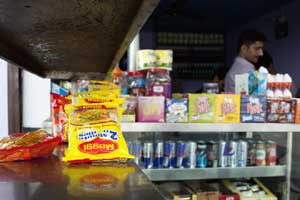The National Consumer Disputes Redressal Commission (NCDRC) admitted the government’s Rs 640-crore class action suit against Nestle India, but not before severely rapping the government on the knuckles. Though the NCDRC case was filed on grounds wider than those rejected by the Bombay High Court — it included unfair trade practices, false labelling and misleading advertisements — the NCDRC brought up the high court ruling during preliminary hearings.
A bench comprising justices VK Jain and BC Gupta said, “The HC has quashed your (government’s) order on the ground that laboratories (where samples were tested) were not accredited and recognised… Second, you did not follow correct procedure.”
The bench added: “Complaint has been filed alleging excess lead content without having a legally permissible report. Why don’t you (government) wait for the decision (lab reports as ordered by HC)?” The court asked, “As on today, what fresh material do you have to show as the earlier has been rejected by the HC?”
Additional solicitor general Sanjay Jain, appearing for the government, said the case was not based on just the reports rejected by the HC and that Nestle had “indulged in unfair trade practices by false labelling” saying the product contained ‘no added MSG’ when in fact it did.
While posting the matter for next hearing on September 30, the bench asked that samples of Maggi be sent to accredited laboratories for tests on lead content and MSG.
While the Bombay HC had asked for fresh tests, rejecting those conducted earlier, in a big boost for Nestle India, it has got a clean chit from regulators in various countries including the US, the UK, Australia, Singapore and New Zealand. The Food Safety and Standards Authority of India, however, has said that while the company has eight manufacturing facilities in the country, all the samples that were tested were those from the Goa unit, meant for exports.
Jain said there was no prescribed standard for testing and so it was up to the FSSAI to decide. Bringing the wider consumer angle under the Consumer Protection Act, Jain argued that Nestle “indulged in unfair trade practices by false labelling of Maggi noodles in as much as it states ‘No added MSG’ prominently on the packet, despite presence of MSG”. Jain told the court that the main question is whether the company has been selling products which don’t fulfil the current guidelines for standards.
In a first-of-its-kind “class action suit, the government has demanded Rs 285 crore for unfair trade practice for selling “defective and hazardous goods” and Rs 355 crore in punitive damages and also an interest of 18% per annum on the amount claimed by it in the complaint till the date of actual payment of the total amount. The firm’s failure to disclose the presence of risk-increasing ingredients was deceptive and misleading, the complaint filed by the Centre through the consumer affairs department said, while accusing Nestle India of promoting noodles containing excessive lead as healthy with the sole aim of enhancing profits.
The company sold Maggi Oat Noodles without clearance from the central food safety regulator. It, however, used its approval mark on the packaging, he added. Usually, individuals move consumer fora but the Consumer Protection Act also allows the government to file complaints on behalf of consumers. This is the first time that the government has made use of this provision.
In its petition, the government also alleged that the company sold “defective” goods to the public by selling Maggi noodles with the presence of lead and MSG and indulged in unfair trade practices by offering for sale Maggi Oats Masala Noodles with Tastemaker without risk assessment and product approval. It also sought a direction to the company to recall all the “defective” and “hazardous goods” with respect to Maggi noodles with Tastemaker in all its variants and Maggi Oats Masala Noodles with Tastemaker and also sought a direction to it for issuance of corrective advertisement to neutralise the effect of the misleading advertisements.
An Uttar Pradesh government order recalling Maggi noodles for containing excessive lead in May triggered a chain reaction across the country. In June, the company announced withdrawal of the Maggi noodles, incurring a one-time removal cost of Rs 451.6 crore. A day later, FSSAI ordered the company to recall its products. Nestle India later withdrew about 30,000 tonnes of the popular instant noodles from the market.

